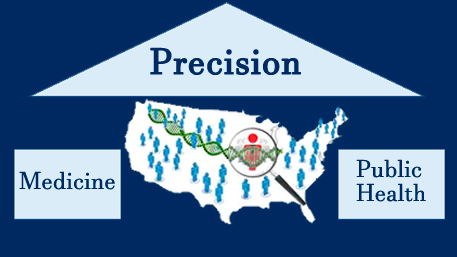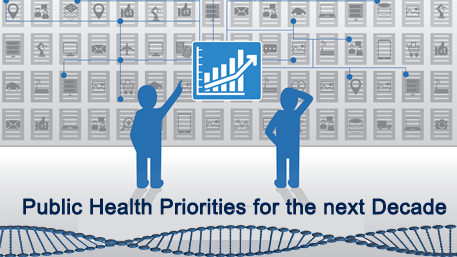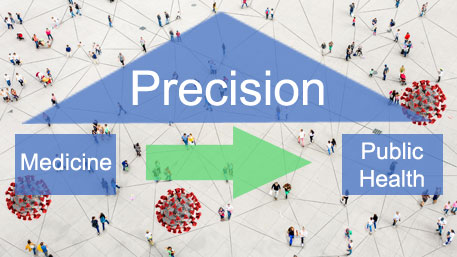Category: precision medicine
Genomics and Health Equity: Reaching Asian American, Native Hawaiian, and Pacific Islander Communities

On April 29, 2022, President Biden proclaimed May as Asian American, Native Hawaiian, and Pacific Islander Heritage month to “recognize the innumerable contributions, vibrant cultures, and rich heritage” of Asian Americans, Native Hawaiians, and Pacific Islanders (AA and NHPIs). In addition, the proclamation highlights the Administration’s work reducing poverty among AA and NHPI families and Read More >
Posted on byWhat is the Role of Public Health in Addressing Health Equity in Genomics and Precision Medicine?

The following are excerpts from our recent paper in Genetics in Medicine. Although recent articles have included strong calls for a health equity agenda in genomics and precision medicine, these calls usually focus on underrepresentation of minority and ethnic populations in research. However, to ensure that genomic discoveries can lead to improved population health outcomes, Read More >
Posted on by 1 CommentFrom Precision Medicine to Precision Public Health: The Dialogue Continues

A recent Nature article discusses the concept of precision public health (PPH) and raises concerns that too much emphasis on data and technology is “diverting attention away from regular public health.” In this post, we advance this important dialogue by focusing on two distinct components of PPH: its role in reaping the population health benefits Read More >
Posted on byWhat should be the public health priorities in genomics and precision medicine in the next decade?

The CDC Office of Genomics and Precision Public Health is undergoing strategic planning to identify major opportunities for impact of public health action in human genomics and precision medicine in the next decade. As part of this process, we interviewed nine persons external to CDC from diverse backgrounds and organizations that represent the leading edge Read More >
Posted on by 1 CommentPrecision Medicine in Action: How can we make cascade screening for hereditary conditions work best in the real world?

If someone in your family were diagnosed with a genetic condition, would you want to be tested for that condition as well? For some disorders, like Huntington’s disease, for which there are no means available for prevention or cure, the question can be extremely difficult to answer. However, with many other conditions (for example familial Read More >
Posted on byPredictive Analytics, Implementation Science, Precision Medicine and Precision Public Health

This blog is a summary of our recent paper based on a multidisciplinary workshop convened by the National Heart, Lung, and Blood Institute to explore enhancement of predictive analytics for implementation research. The use of predictive analytics in precision medicine (the right intervention to the right patient at the right time) is well established. The Read More >
Posted on byFrom Precision Medicine to Precision Public Health: Beyond the Pandemic

Precision medicine and precision public health are emerging fields that use genomics and other big data technologies to provide more targeted interventions at the individual and population levels. Precision medicine can be thought of as delivering the right intervention to the right individual at the right time, while precision public health can be simply viewed Read More >
Posted on byA 2020 Reality Check on the Public Health Impact of Cancer Genomics and Precision Medicine

“Precision oncology has had some major successes… And yet, the overall effect of precision medicine on care for patients with cancer has been modest.” (David Cutler, JAMA Health Forum, 2020) The Promise of Genomics and Precision Medicine in Reducing the Burden of Cancer In 2015, the United States launched the Precision Medicine Initiative (PMI) “to Read More >
Posted on byPrecision Medicine Update: Important Progress on the Long Road from Discovery to Population Health Impact

Impressive Pace and Potential The All of Us Research Program is an ambitious United States initiative launched in 2015 to collect health-related information on one million or more volunteers from diverse communities. A recent paper in the New England Journal of Medicine described progress and lays out the vision for the initiative moving forward. As Read More >
Posted on byWhy should early career public health researchers pay attention to precision medicine?

In a recent commentary published in the American Journal of Public Health, I had the privilege of working with a group of early career investigators to begin a conversation about the impact that the debate between the utility of precision medicine and public health approaches is having as we begin our research careers. To begin, let’s Read More >
Posted on by

